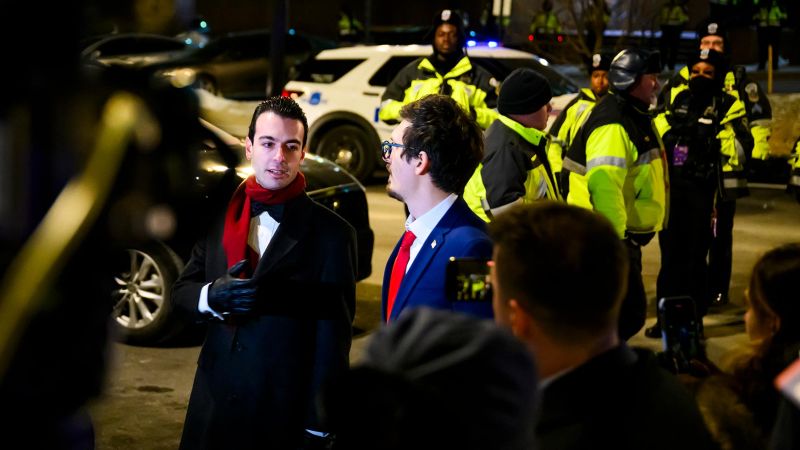The Office of Special Counsel, established nearly five decades ago, serves as the foremost agency in the United States government tasked with protecting whistleblowers and investigating alleged ethics violations. Created in the wake of the Watergate scandal, its noble mission is to eradicate governmental and political corruption. Historically viewed as a federal watchdog, the OSC has upheld a essentially nonpartisan mantra. However, recent developments suggest that this agency is on the verge of facing its most formidable challenge yet.
Concerns about the agency’s integrity have emerged, primarily from insiders and independent watchdogs who argue that the OSC has been “captured” by loyalists of the Trump administration, the very group it was intended to scrutinize. This apprehension reached new heights when President Donald Trump appointed Paul Ingrassia, a self-proclaimed “MAGA loyalist,” to lead the agency. Ingrassia’s nomination raised eyebrows as he has publicly expressed intentions to address what he perceives as an entrenched “deep state” within the federal government aimed at opposing Trump.
While Ingrassia’s selection awaits approval from the Republican-controlled Senate, speculation is rampant that he will leverage the OSC to politicize the agency, converting it into a vehicle for advancing Trump’s agenda while retaliating against adversaries. Interviews conducted with former federal ethics officials and legal professionals with active cases before the OSC have painted a troubling picture; they noted a marked decline in whistleblower activity directed at the OSC, with many opting to report their concerns to Congress, the media, or agency inspectors general instead.
As a direct result of the charged political climate and the perceived shift in the agency’s priorities, potential whistleblowers are expressing hesitation about coming forward. Tom Devine, a veteran attorney with the nonpartisan Government Accountability Project, who has long championed the rights of whistleblowers, articulated that his clients feel increasingly anxious about risking their positions, fearing potential repercussions from OSC under Ingrassia’s leadership. Devine stated, “For years, OSC has been the go-to option for whistleblowers. If Ingrassia is confirmed, we’ll have to caution whistleblowers against trusting the OSC, as it may amount to a professional death sentence.”
Despite this foreboding sentiment, Ingrassia has refrained from commenting on the criticism surrounding his appointment. Conversely, Corey Williams, the OSC spokesman, asserted that the agency remains steadfast against accusations of becoming a partisan institution under Ingrassia’s potential leadership. The OSC’s role is crucial; it enforces the Hatch Act, which prohibits political activities by federal employees, ensuring the civil service’s nonpartisan integrity and investigating claims related to waste and abuse while also safeguarding whistleblowers from retaliation.
The agency has historically operated in relative obscurity, with notable controversies arising during various administrations. There have been instances of its leaders facing allegations of politicization, and direct criticisms have been made toward top elected officials during past administrations for their conduct. For instance, during Trump’s initial term, the OSC called for the dismissal of Kellyanne Conway for campaigning from the White House, as well as admonishing Cabinet members for their appearances at the 2020 Republican convention.
However, the recent trajectory of the OSC seems troubling, especially since the firing of Hampton Dellinger, a Biden appointee whose term did not expire until 2029, indicated a potential bias toward Trump’s agenda following his departure. After Dellinger’s ousting, the agency saw a rapid alteration of its policies, including the revival of previous orders that allowed federal workers to wear campaign gear while at their jobs.
Compounding the concerns surrounding Ingrassia’s nomination, critics emphasized his relative inexperience for the role. Having graduated from Cornell Law School in 2022 and previously engaged with far-right media, many believe that his background does not align with the qualifications stipulated by federal law for leading the OSC. Given these factors, some experts are already suggesting that whistleblowers forego the OSC altogether, seeking recourse through alternative channels like the inspectors general.
The growing unease has prompted a shift, with recent reports indicating greater numbers of whistleblowers turning to Congress rather than traditional oversight bodies, further highlighting the agency’s deteriorating credibility as a safe haven for those exposing wrongdoing. Democratic representatives, such as Rep. Stephen Lynch, have reiterated their openness to those feeling uncomfortable reporting misconduct to the OSC, further emphasizing the urgent need for a solution to restore trust in whistleblower protections within the federal landscape.
In summary, as the appointment of Paul Ingrassia presents a significant turning point for the OSC, the implications for whistleblowers are profound and warrant close scrutiny. The historical legacy of the Office of Special Counsel and its ability to function independently in safeguarding the rights and voices of whistleblowers may hang precariously in the balance as these developments unfold.



